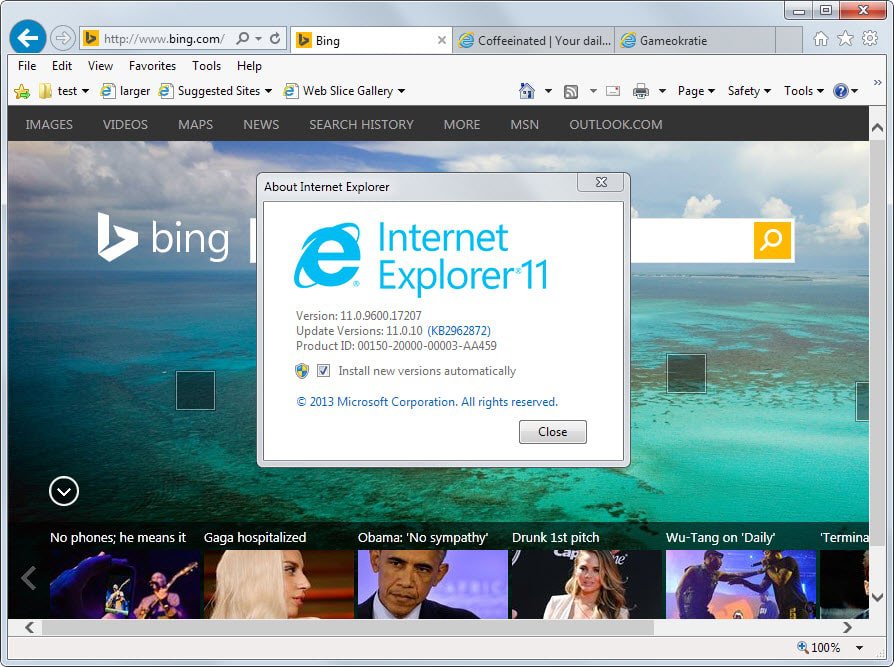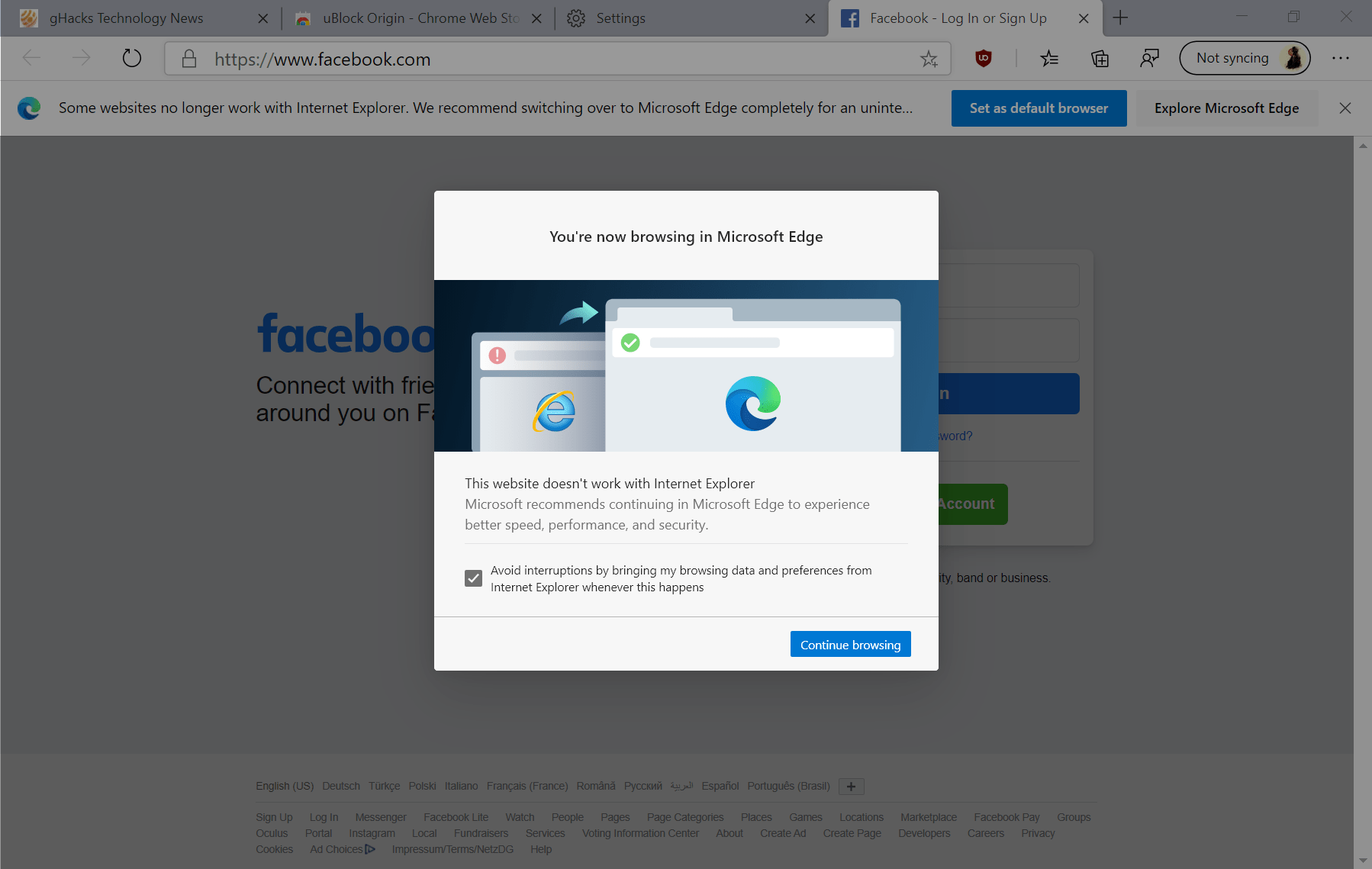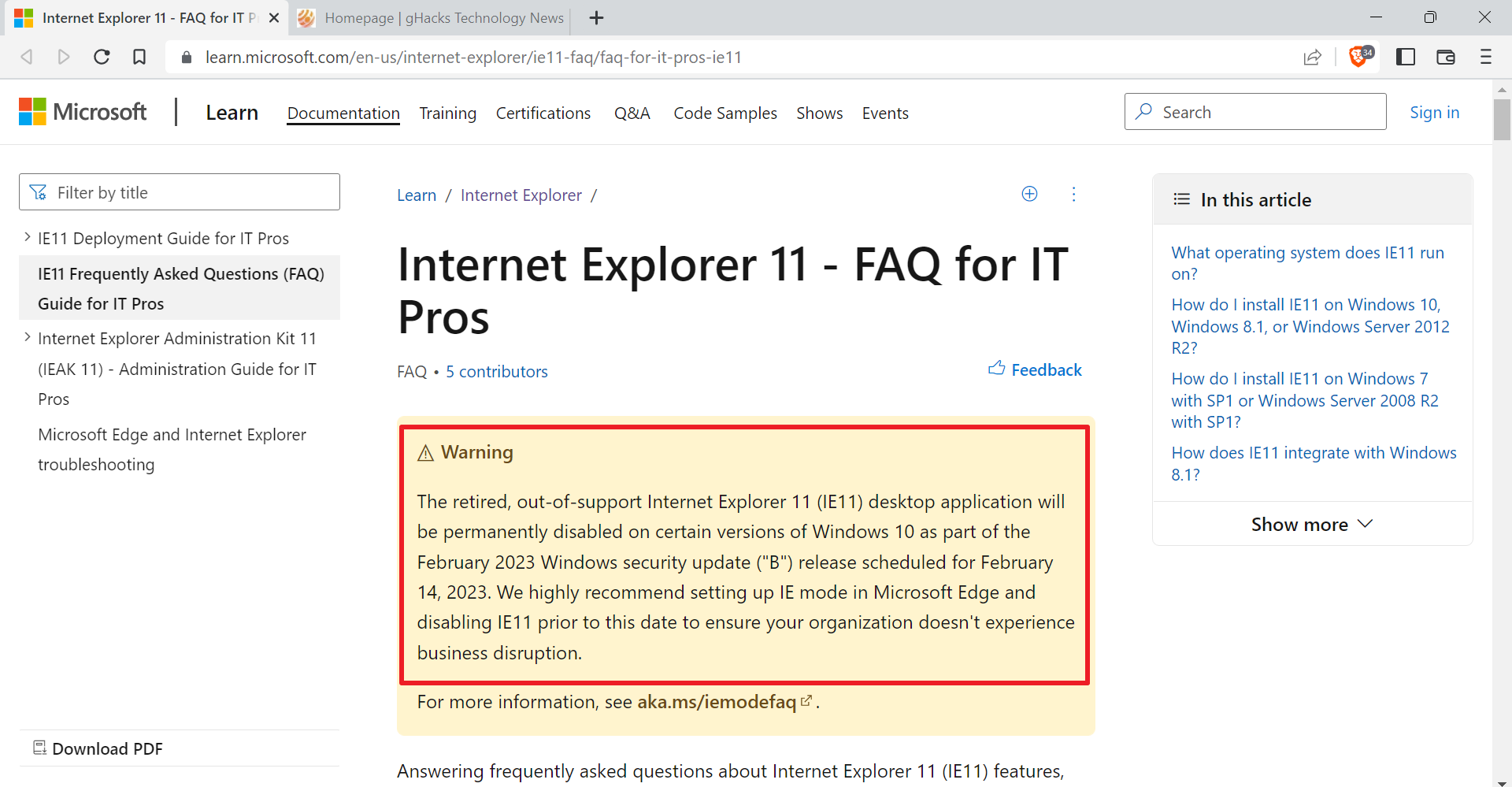Microsoft to only support most recent IE version from 2016 on

When it comes to supporting web browsers, most companies have made the decision to only support the most recent version of it and maybe in addition to that an extended support release version.
Microsoft on the other hand has not done so up until now. This means that all four major versions of Internet Explorer available for Windows 7 are supported by the company.
The operating system shipped with Internet Explorer 8 back in 2009 and users of it can install IE9, IE10 or IE11 on it as well either via automatic updates or manually.
According to Microsoft's announcement on the official IE blog, things are going to change soon for customers running supported Windows client and server systems.
Starting January 12, 2016, only the most recent version of Internet Explorer for each operating system continues to be supported by the company.
This means that the following systems are supported as of now:
| Windows Platform | Internet Explorer Version |
| Windows Vista SP2 | Internet Explorer 9 |
| Windows Server 2008 SP2 | Internet Explorer 9 |
| Windows 7 SP1 | Internet Explorer 11 |
| Windows Server 2008 R2 SP1 | Internet Explorer 11 |
| Windows 8.1 | Internet Explorer 11 |
| Windows Server 2012 | Internet Explorer 10 |
| Windows Server 2012 R2 | Internet Explorer 11 |
Since we are more than a year away from that date, supported versions may change if Microsoft releases a new version of the browser in the meantime.
Considering its only "for current and last system" system stance, this would most likely only affect Windows 8.1 and Windows Server 2012 R2 and not other versions of the operating system.
Why?
According to Microsoft, installing and using the latest version of Internet Explorer benefits users in several ways. This includes improved security as new versions of the browser ship with additional protection against web threats, productivity in the form of better support for web standards, and better compatibility with newer versions of Windows and Windows powered devices.
The Consequence
Customers who don't upgrade to the latest available version of Internet Explorer by January 12, 2016 won't receive security updates or technical support anymore.
Microsoft is aware that older versions of the browser are used in business and enterprise for compatibility purposes. The company will offer migration resources and new tools such as the new Enterprise Mode of Internet Explorer 11 to help companies migrate to the latest version of the browser.
Conclusion
Microsoft has announced the move more than 16 months in advance, enough time for many companies to prepare their infrastructure for the inevitable.
By that time, Windows 9 will have been released by Microsoft giving companies an option to upgrade to the latest operating system.
The move makes sense from a security and web standards compatibility standpoint. Companies who rely on older versions of Internet Explorer, for instance version 6, to run applications in company networks may not want to upgrade to a newer version as it means additional expenses for them to make sure the apps run like before in newer versions of the browser.
Now You: What's your take on the decision? Will it force companies to upgrade to newer versions of Windows and Internet Explorer, or will it lead to companies leaving the Windows ecosystem completely?
















Actually I think Google putting https sites higher on the rankings is a good move, as it encourages sites to move to https. It’s 2014, all sites should have moved to https long ago.
I don’t get the benefit of having all sites move to HTTPS, only sites when you are sending personal information.
You’ll find some arguments here : https://www.eff.org/https-everywhere/deploying-https
Martin, make an article talking about what you think about the coming project Mozilla Lightspeed:
https://blog.mozilla.org/verdi/463/lightspeed-a-browser-experiment/
https://www.youtube.com/watch?v=wLnSLFrQDG8
Done and thanks for the tip! https://www.ghacks.net/2014/08/08/mozillas-lightspeed-could-make-the-web-a-lot-simpler/
If only there was a way to completely, totally remove Internet Explorer permanently from any windows os. Oh well, this announcement will scare many people into using Firefox, Chrome… and motivate them to move on from IE. Its sort of like the XP discontinuation announcement. People got nervous and upgraded away from it even though there is no immediate danger in keeping XP for now. This will cause the same reaction for IE and will help kill it off faster.
I expect that many IE users will move to Chrome or Firefox and never look back. Corporate IT will now need to modify IE locked intranets to use other browsers, or at least support the latest IE version for the OS they deployed, if they have the time and management support to do so.
Actually I hope this means that Internet Explorer will become completely independent from Windows.
offtopic but Hello Martin since when do you have https on ghacks?
thanks for that!
Just an experiment right now. I have disabled it again for the time being as I did get too many mixed content warnings.
Martin,
Google search presents https sites at the top in search results.
Yes I noticed. I think it is another stupid move by Google. While it may work for sites that require security, shopping sites for instance, there is no need or reason to implement it on blogs or other sites where it makes no difference.